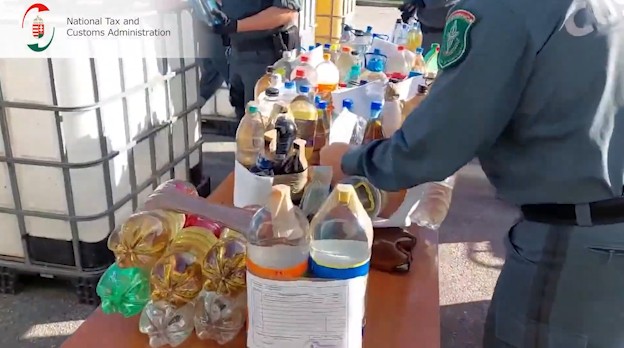Counterfeit food and beverages cause billions in damage in Hungary every year
In Hungary, counterfeit food and drinks cause losses of nearly 16 billion forints and hundreds of job losses every year. The situation is even worse in the European Union: the loss of sales of counterfeit wines, spirits, sweets and other foods amounts to 2.3 billion euros per year. A new campaign by the EUIPO not only draws consumers’ attention to the dangers, but also provides practical guidance on how to spot counterfeits.
 Counterfeit food and drinks pose a threat to the health of consumers, legitimate producers and Europe’s culinary heritage, warns the European Union Intellectual Property Office (EUIPO) on the occasion of World Anti-Counterfeiting Day. According to the office, the expansion of e-commerce is further increasing the risks, as it is increasingly difficult to distinguish between genuine and counterfeit products on online marketplaces.
Counterfeit food and drinks pose a threat to the health of consumers, legitimate producers and Europe’s culinary heritage, warns the European Union Intellectual Property Office (EUIPO) on the occasion of World Anti-Counterfeiting Day. According to the office, the expansion of e-commerce is further increasing the risks, as it is increasingly difficult to distinguish between genuine and counterfeit products on online marketplaces.
Serious health and economic risk
According to data from the OPSON operation conducted by the authorities in 2024, €91 million worth of counterfeit and substandard food and drinks were seized in a single operation – including items containing methanol, mercury and toxic pesticides. This not only represents a public health risk, but also confirms the presence of organised crime behind food counterfeiting.
In the EU, nearly 5,700 jobs are lost in the sector every year as a result of counterfeiting, and Member States lose €2 billion in tax revenue. In Hungary, 270 jobs are at risk, and the annual loss amounts to €39 million – around HUF 16 billion.
Wine is the most vulnerable category
Wines and spirits are among the most frequently counterfeited products, especially in the case of shipments from countries such as China and Turkey. Counterfeiters often use refilled bottles, false labels and manipulated packaging, making it difficult for consumers and authorities to identify the products.
Contrary to their previous association with luxury goods, cakes, pasta, crisps and sweets are now also appearing in large numbers in counterfeit form among goods seized at the EU’s external borders – they were the second largest item in 2020.
Related news
Half of Hungarians already search for products using AI
🎧 Hallgasd a cikket: Lejátszás Szünet Folytatás Leállítás Nyelv: Auto…
Read more >Related news
(HU) METRO Gasztro Fesztivál a SIRHA Budapesten – Élmény, inspiráció és valódi megoldások a HoReCa-szakmának
🎧 Hallgasd a cikket: Lejátszás Szünet Folytatás Leállítás Nyelv: Auto…
Read more >Fidelity: What awaits China in the Year of the Horse?
🎧 Hallgasd a cikket: Lejátszás Szünet Folytatás Leállítás Nyelv: Auto…
Read more >








